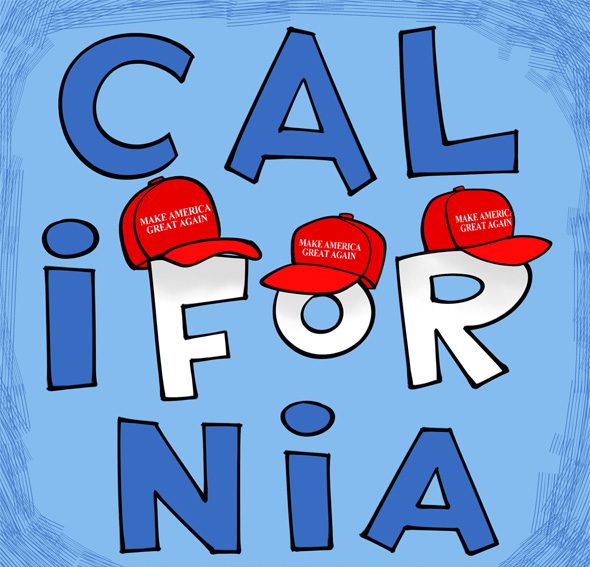Economic nationalist Pat Buchanan opined last week that the United States’ fraught political climate is turning the world against democracy. In his article “How Democracy is Losing the Word”, he argued that our country’s sharply divided political culture, the corporate media’s obsession with Trump, plus authoritarian regimes’ economic successes were making democracy look bad. However, Buchanan’s repeat pessimism is based on a fundamental flaw, one which inadvertently exposes the very political and societal maladies he diagnosed that are generating upheaval in Europe, Canada, and throughout the Western World.

Early in his lamenting jeremiad, Buchanan writes: “And what will a watching world be thinking when it sees the once-great republic preoccupied with breaking yet another president?” But then he writes: “Among the reasons democracy is in discredit and retreat worldwide is that its exemplar and champion, the USA, is beginning to resemble France’s Third Republic in its last days before World War II.” So, which is it, Pat? Is the United States a republic or a democracy? One of our Founding Fathers already answered this question: “A republic, if you can keep it.” The difference matters. Sadly, Buchanan’s seeming indifference to this fundamental distinction occurs often—and is too often overlooked.
Before debunking the so-called “crisis of democracy”, is it really true that the autocratic regimes he references are enjoying the peace and prosperity? China’s market economy within a brutal dictatorship is stalling big timev because of President Trump’s successful trade and tariff offensive. China’s militant repression against the Muslim Uighurs is disgusting Chinese and foreign nationals alike. Turkey has become a third-world dystopia, hardly a shining beacon of economic prosperity and national security.
But what else does Buchanan get wrong?
Despite the crises emerging in the corporate press, the United States is a remarkable testimony to good government, in that we are a republic. Counter-majoritarian institutions like the Electoral College and separate state government have ensured effective limits to very cultural malaise eating away at Europe. The corrupt media, for all its progressive posturing, could not stop Trump, either.
But why does Buchanan’s mix-up matter? How does his mistake inadvertently explain the reason for the Western Malaise he diagnoses?
First, let’s define the differences, which rest on more than who votes for whom. In a democracy, the rule of law is the rule of the majority, regardless of established norms and institutions. In spite of the rights and responsibilities championed by Ancient Athens, the majority of Athenians voted for Socrates’ death because they didn’t like his views. The Wiemar Republic, a makeshift democracy assembled after Germany’s fall in World War I, transformed into a fascist tyranny under democratically elected Adolph Hitler.
To avoid these perverse outcomes, the American Framers disparaged democracy, which amounts to two wolves and a lamb voting on what—or rather who—is for dinner. Aristotle, himself a statist-elitist in Ancient Athens, described a republic as “rule by the many for the benefit of all”, in contrast to democracy, “rule by the many for the benefit of the many.” In a republic, the rule of law curbs the rule of the majority. Socrates would have received constitutional protections to disparage directly-elected rulers without fear. In a republic, no one is above the law, including the crowd as well as the individual ruler or the governing class.
The United States’ republican Constitution outlines institutions to channel as well as check and balance popular, aristocratic, and autocratic tendencies. Counter-majoritarian institutions like the US Supreme Court serve as final arbiters for legal disputes. State and local governments rebuff federal power. Enumerated powers and the Bill of Rights describe the boundaries for the government, not the people. These arrangements preserve individual liberty as well as local sovereignty, and both arrangements safeguard the interests of all. If the world is witnessing the demise of “democracy”, we should rejoice.

But will republicanism take its place? Anti-globalist protesters around the world may be rejecting “democracy”, but they need to understand why and agitate for something better. Populism in terms of policy outcomes is noteworthy. However, populism as the means for governing is not. Conservative and progressive nationalists plus the vast majority of the Yellow Jacket protestors understand that corporate interests and globalist activists have twisted democracy to their selfish ends. The answer does not lie in more “Power to the People”, but less power to the state. They must fight for natural law and natural rights, which means a constraint on government power altogether, not more democracy.
Pat Buchanan’s unintended confusion should concern us, since it reflects the underlying problems in the West. Younger generations around the world don’t know the difference between democracy and republicanism. They certainly don’t understand how democracy is inimical to individual and national liberty, while republicanism preserves both. The older (and newer) generation of reporters, liberal and conservative, don’t respect this difference, either, and their views are informing the public discussion as a whole. At the very least, conservative pundits who serve as the only source of good political science should understand this difference. It’s not ethnic nationalism, but republicanism that can Make the West Great Again.
If citizens in countries can’t distinguish between democracy’s failures and republican successes, these worldwide uprisings won’t accomplish lasting improvements. They rightly oppose the consequences of unfettered expansion of the state, and they are demanding that the governments be more responsive to “The People”. However, more government elected by “the people” will not bring about a limited government protecting citizens’ rights and safeguarding the nation from domestic insurrection and foreign invasion.
There is no demise of democracy in the United States, since we are not a democracy. Furthermore, Europe’s answers to open borders, higher taxes, diminished public safety, and cultural ennui sweeping those nations lie in the adoption of America’s republicanism: definition and protection of the natural rights of citizens, installation of principled checks and balances within government, and recognition of the nation-state to establish its borders, language, and culture—with a commitment to protect the Judeo-Christian principles that inspired the United States Constitution.





